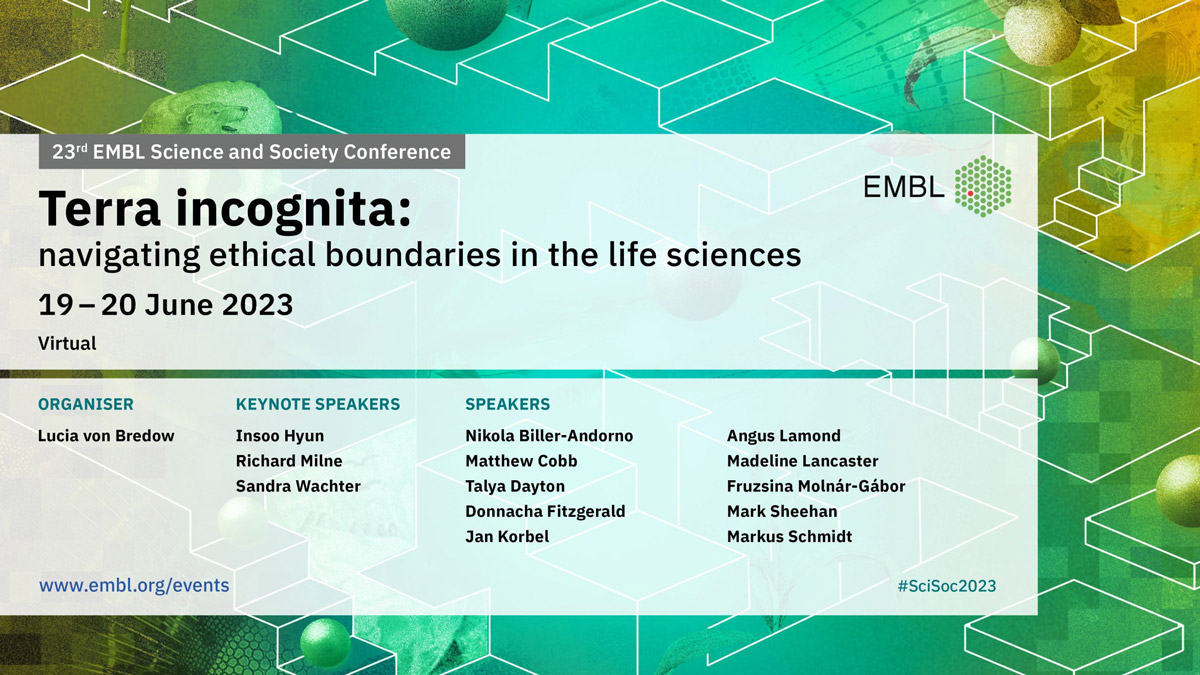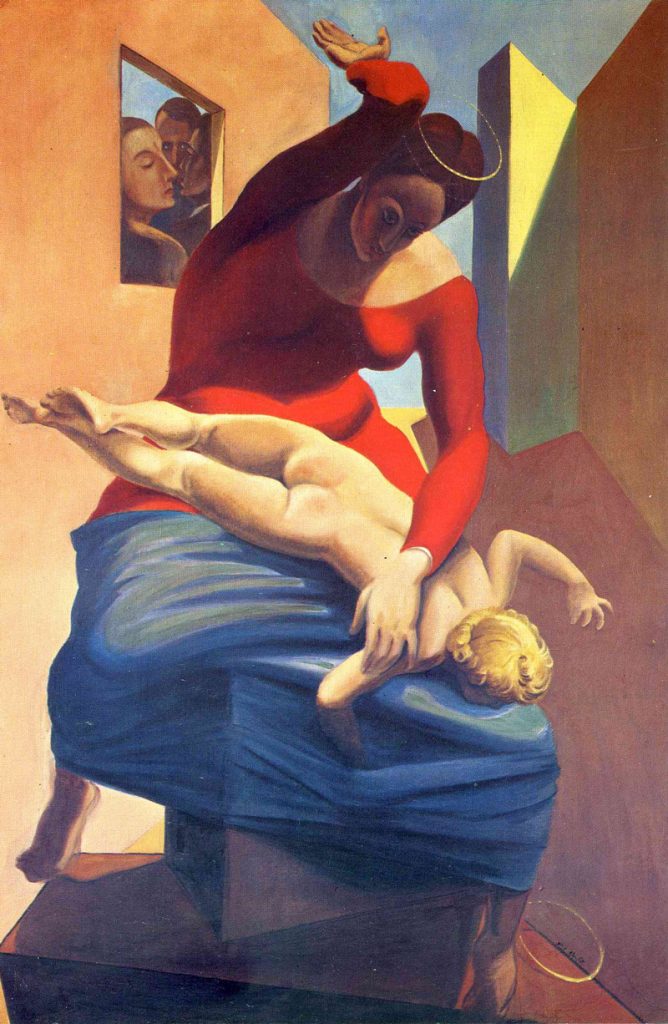The 23rd EMBL Science and Society Conference examined the breadth of ethical issues present in the life sciences through the lens of molecular biology research. It explored both the historical context of the intersection between research and ethics, and the fast pace of emerging ethical challenges in the life sciences through two case studies: technology ethics and organoid research. It presented different stakeholder perspectives on navigating ethical boundaries in molecular biology research, as well as featuring a live debate on ethics in research, issues around dual use and beyond.
In one of the sessions, Biofaction’s founder Markus Schmidt was invited to discuss the future of ethics and science. Schmidt highlighted that scientists usually perceive ethics as a hindrance and additional administrative burden, most often being reluctant to engage with ethics beyond what is strictly necessary. To illustrate this point, Schmidt showed the painting, The Virgin Spanking the Christ Child before Three Witnesses: Andre Breton, Paul Eluard, and the Painter Max Ernst (By Max Ernst 1926), highlighting the perceived relation between ethicists and scientists. He also offered some hints how to overcome this unhealthy relationship, so that ethics could become asource of inspiration rather than dread for scientists.

